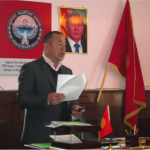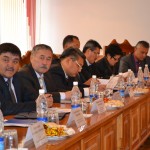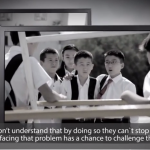
Hearings on the local government budget were held earlier this year for the first time in three local government units, or aiyl okmotus, in the Nookat district of Osh province in the Kyrgyz Republic. Over 200 villagers and three officially recognized “initiative groups” representing nine communities—three from each AO—actively participated in the open budget hearings, and proposed priorities, amendments and additions for the 2014 annual budget.

The judicial system in Kyrgyzstan has long been viewed as a minor player among the more powerful branches of government. Staff turnover is so high that 70 percent of personnel have been with the judicial system for less than five years. Employees work in inadequate conditions and an estimated 90 percent of court buildings are in dire disrepair. Kyrgyzstan’s citizens also report a low regard for the judiciary.

Not long ago, Ramil*, now 19, was one of nearly 11,000 children who grow up in orphanages and boarding schools in the Kyrgyz Republic. Many are required to leave at the age of 15 to 17 because of official regulations. Having to adjust to a new life with limited support, some end up on the streets—a life Ramil knew all too well.

Many teenagers around the world are in high school, preparing to leave for college. But Dastan Umetbai Uulu, a 17-year-old journalist from Kyrgyzstan, is completing his 16th story in the past few years. He is a product of his own determination and the skills provided by a USAID project.

Curtailing Kyrgyzstan’s school racketeering culture is not a simple task—myriad forces work against progress. Some insist that the education system reflects problems within Kyrgyz society at large, including ethnic conflicts, civil unrest and powerful organized crime syndicates.








Comment
Make a general inquiry or suggest an improvement.